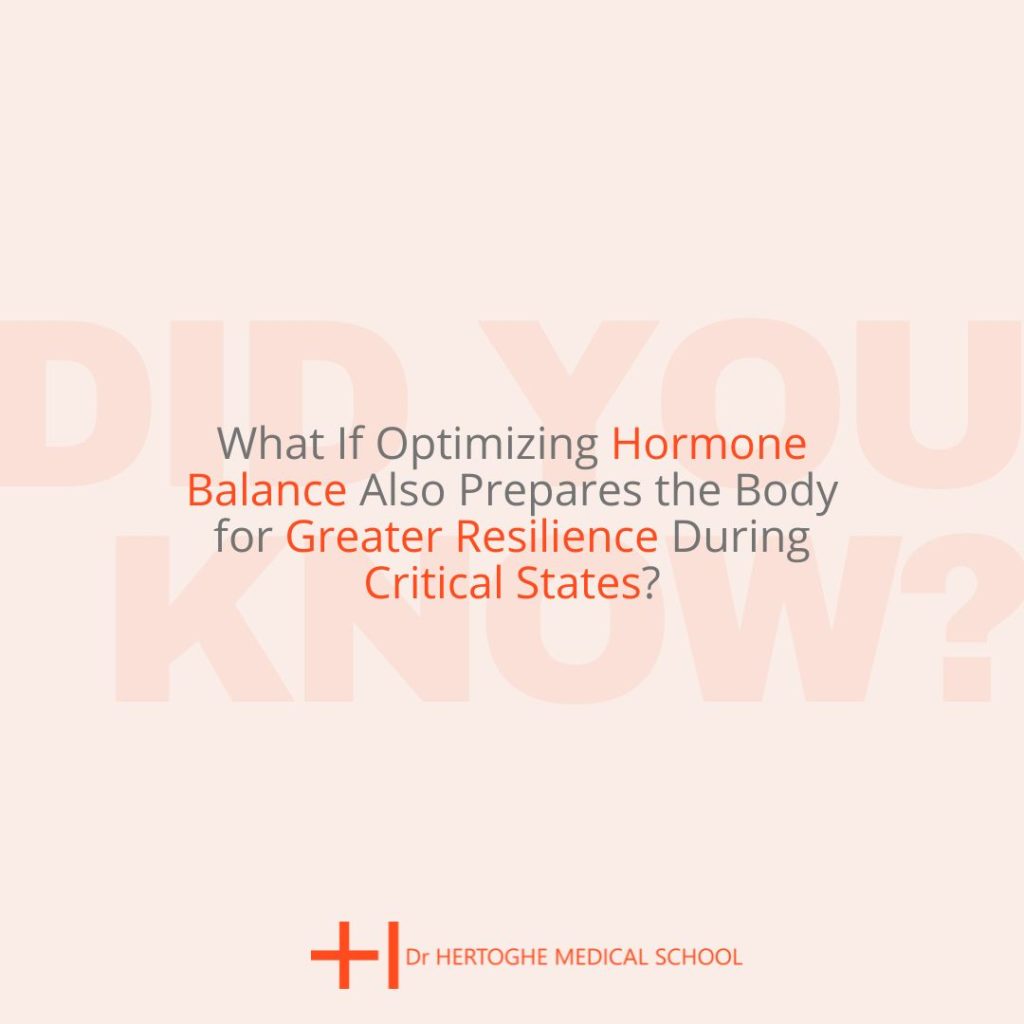What If Optimizing Hormone Balance Also Prepares the Body for Greater Resilience During Critical States?

In clinical practice, hormone therapies are commonly used to relieve symptoms, enhance quality of life, or slow the aging process. However, recent research suggests a deeper, more far-reaching role: balanced hormone levels may actually strengthen the body’s resilience, even under life-threatening conditions.
A particularly striking example comes from studies on brain death. In patients declared brain-dead, researchers observed that the administration of triiodothyronine (T3) and hydrocortisone significantly prolonged the time between the cessation of cerebral activity and cardiac arrest. Despite the complete absence of brain function, the heart continued to beat longer in those who received hormonal support. These patients maintained better arterial pressure, stronger cardiac output, and more robust ventricular contractility compared to those who did not receive hormone treatment.
This is not just an interesting observation — it points to a fundamental biological principle: hormones are essential to preserving systemic integrity, even when the central nervous system has shut down.
Similar findings emerge in critical care settings. Patients in intensive care units who present with higher levels of free T3, cortisol, and IGF-1 consistently have better chances of survival. These individuals tend to recover more rapidly, preserve organ function, and achieve more favorable outcomes, even when facing severe infections, respiratory failure, or major trauma.
Such evidence suggests that optimizing hormonal balance before the onset of critical illness may give the body a vital advantage in facing extreme physiological stress. Conversely, undetected or unaddressed hormone deficiencies may silently undermine the body’s ability to cope with surgical recovery, intensive care, or traumatic injury.
The broader implication is that supporting hormone health ahead of time is not merely about managing disease — it is about reinforcing the body’s capacity to withstand and recover from it. Whether through thyroid regulation, adrenal support, or anabolic hormone optimization — including growth hormone, IGF-1, and testosterone — hormonal therapies can enhance stress response, accelerate tissue repair, and increase the body’s chances of survival under acute threat.
This emerging perspective invites us to rethink preventive care. It encourages us to move beyond symptom control and consider hormones as vital, life-supporting agents that preserve biological stability when it matters most. The true promise of preventive medicine may lie not just in avoiding illness, but in fortifying the internal reserves that allow patients to survive it.

